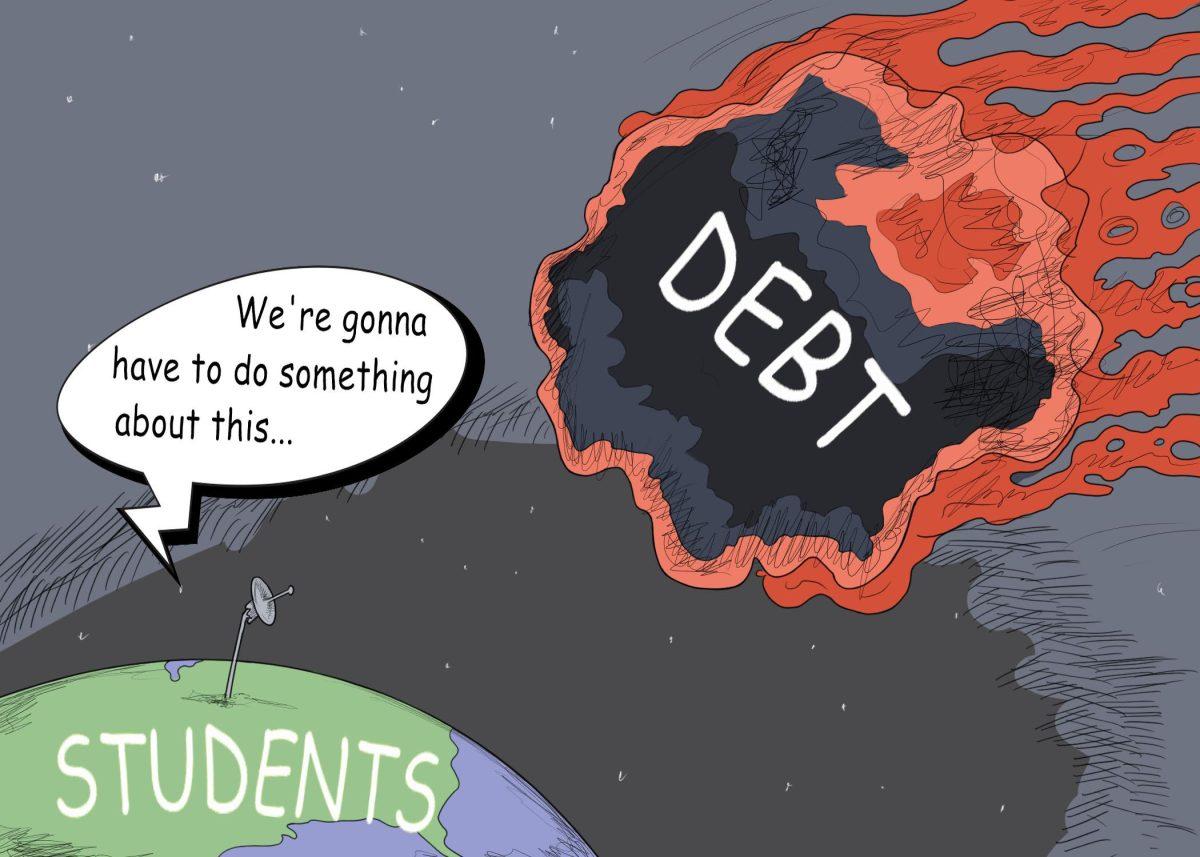Imagine the constant pressure of $37,172 of debt dogging you at every moment. Now imagine this financial weight immediately lifting, never to return. Under the student loan debt cancellation plans espoused by Democratic candidates Elizabeth Warren and Bernie Sanders, this could be the new reality for the millions of Americans currently suffocating under the immovable and crushing weight of student loan debt.
Contrary to many critics’ complaints, the current debt total of $1.6 trillion would not be paid for by dramatic tax hikes on the average American. Under Sanders’ plan, Wall Street would foot the bill through “a 0.5 percent tax on stock trades…a 0.1 percent fee on bond trades, and a 0.005 percent fee on derivative trades.”
Under Warren’s plan, the top 0.1% “would pay an annual 2% tax on every dollar of net worth above $50 million and a 6% tax on every dollar of net worth above $1 billion.” More plainly said, two sources of extreme, unthinkable wealth, Wall Street and the ultra-millionaires of America, would be taxed at a rate low enough to disrupt neither the functionality of our financial system nor the quality of life for the rich, yet still high enough to rake in the trillions of dollars necessary to cancel all student loan debt.
For those complaining student debt cancellation would be unfair to those of us without student debt, who made you so bitter? Students are not taking out enormous student loans due to financial frivolity, but because as a college degree becomes a necessity to earn a living wage, tuition prices skyrocket.
Forbes found that over the last 30 years “the cost to attend a university increased nearly eight times faster than wages did.” It is no longer realistic to plan on “working your way through college” without receiving substantial scholarships, help from family or both. For students who find themselves without these resources, student loans are the only option.
A 2018 study conducted by the Levy Institute found “[debt] cancellation would have a meaningful stimulus effect” for the American economy. College graduates, once fiscally restrained due to their monthly debt payments, would be more likely to invest their money in places that boost the nation’s GDP, like small businesses. The average American would see their credit scores boosted, leading to an increase in home ownership, marriage and family-building.
In the long-term, debt cancellation would have to be paired with a more sustainable solution, namely making public universities free. The combined effect of debt cancellation and free public college would lead to a more educated American population, which as the Organization for Economic Co-operation and Development found in a 2015 study, would mean American citizens “live longer, healthier lives, commit fewer crimes, and are more civically engaged.”
According to a report published by the Reveille earlier this year, the average LSU student graduates with $24,933 in debt. While this is over $10,000 less than the national debt, it is still an incredible source of stress to recent college graduates who must throw much of their small paychecks into the ever-growing pit of student debt.
Rather than devote much of their post-graduation earnings to paying off this impossible debt, University graduates deserve to be able to devote their money toward building families and investing in industries that make LSU proud.
Cécile Girard is a 20-year-old psychology sophomore from Lake Charles, Louisiana.
Opinion: College debt should be canceled, would allow LSU graduates, America in general, to prosper
February 5, 2020
“We’re gonna have to do something about this…”







